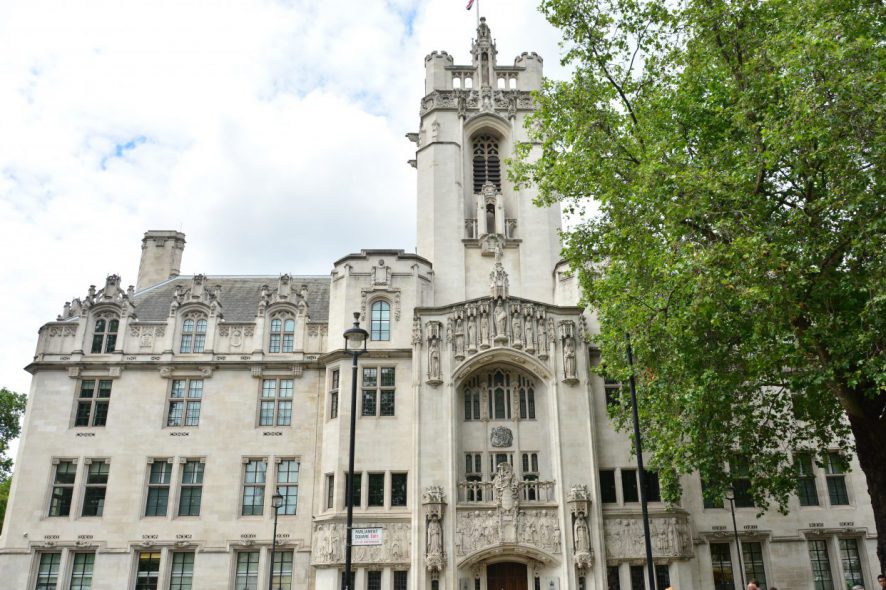Supreme Court of the United Kingdom: A Full Bench of Lady Hale (President), Lord Reed (Deputy President), Lord Lloyd Jones, Lord Sales, and Lord Thomas, dismissed the appeal filed by a bank.
In the present case, the respondent company, “Singularis”, is registered in the Cayman Islands, which was set up to manage the personal assets of Mr Maan Al Sanea. He was the company’s sole shareholder and also one of the directors. The other 6 directors did not have any influence over the company’s management. A loan financing for the purchase of shares was provided to Singularis in 2007, by the appellant investment bank i.e., Diawa. This loan was also the security for the repayment of the loan. In the year 2009, after the shares were sold and the loans were repaid, a surplus amount of money (US$204m) was held by the bank for the account of the respondent company. As per the instruction given by Al Sanea, Daiwa paid out the surplus funds to third parties. The payments were misappropriation of Singularis’ fund and as a result of that Singularis was unable to meet the demands of the creditors. Singularis consequently entered into liquidation. On 18.09.2009, the Cayman Islands made a winding-up order and a joint liquidator were appointed for the same.
Respondent company herein (Singularis) held a certain sum of money as a deposit with the appellant bank (Daiwa). In 2009, the bank Daiwa was instructed by an authorised signatory of Singularis (Mr. Al Sanea) to make payments out of Singularis’ account. The Bank approved and completed the transfers notwithstanding many obvious and glaring signs that Mr. Al Sanea was perpetrating a fraud on the company. In 2014, Singularis issued a claim against the bank for USD 204 million (the total amount transferred in 2009). There were two bases for the claim: (i) dishonest assistance in Al Sanea’s breach of fiduciary duty in misapplying Singularis’ funds; and (ii) breach of the Quincecare duty of care owed by the Bank to Singularis by giving effect to the payment instructions.
The Quincecare duty arises when bankers are asked to make payments in circumstances where there are reasonable grounds to suspect possible fraud. In such a situation, banks owe a duty of care to their customers to refrain from making payments. When “on inquiry” in this way, banks have a positive duty to investigate the potential fraud, they have to be satisfied, by enquiring as far a reasonable banker could be expected to do so, that the payment is not fraudulent before they can be “off inquiry” and go on to comply with their contractual obligations and make the payment.
The claim allowed by the High court was the breach of the Quincecare duty of care. Since Daiwa’s appeal against the finding of liability on the negligence was dismissed, it appealed to the Supreme Court.
The main issue which arose in this matter was, whether the appellant bank was in the breach of its duty towards their customers by transferring the money regardless of circumstances which were suspicious. Also, whether the customer’s claim against the bank was precluded by the fact that the fraudulent acts of the director should be attributed to the customer so as to bar the claim of the customer against the bank.
According to the findings of the case, the judge held that there was a clear breach of Quincecare duty of care by the appellant bank towards the respondent company. The possible defences raised by Daiwa were: illegality, causation, countervailing claim in deceit and attribution. The Court opined that whether or not Mr. Al Sanea’s fraud was attributed to the company, the said defences would fail in any circumstance. It was held that Daiwa was liable to Singularis for its breach of Quincecare duty. It was the appellant bank’s duty to realise something suspicious was going on and a reasonable inquiry should have been done for the same. Due to Daiwa’s negligence, the company (and through the company, its creditors) had to suffer and be victims of fraudulent incidents.
Thus, the claims of Daiwa were dismissed and the judgment of the trial court was upheld. [Singularis Holdings Ltd. v. Daiwa Capital Markets Europe Ltd., [2019] 3 WLR 997, decided on 30-10-2019]







